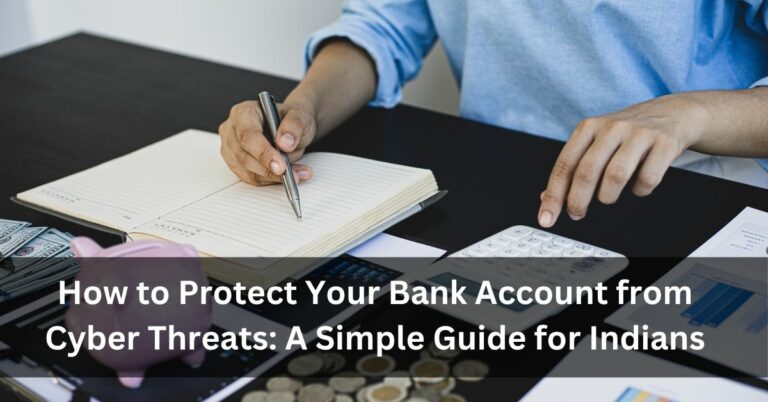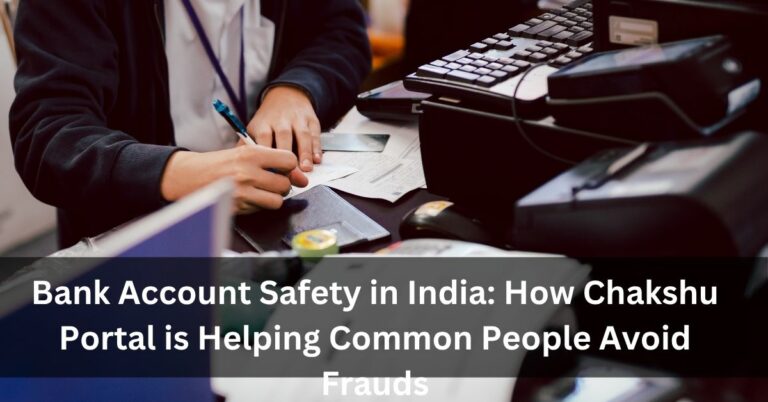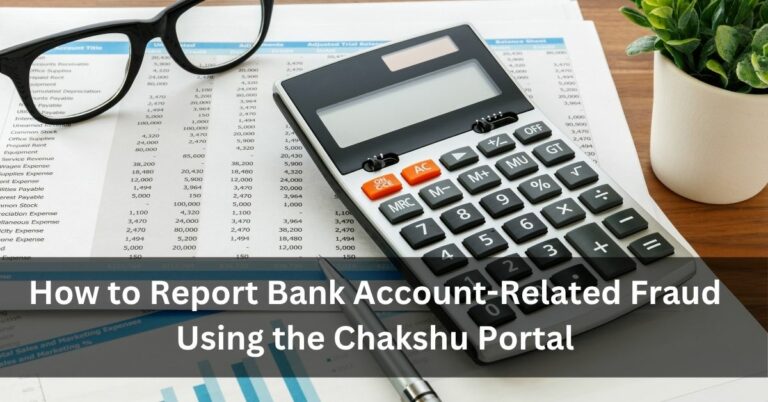Bank Account Scams in India: What They Are and How You Can Stay Safe
In India, more and more people are becoming victims of bank account scams. These scams don’t just affect the rich or those who use high-end technology. Even a simple smartphone user, student, or homemaker can become a target. At Chakshu Portal, we believe staying alert is the best way to protect your hard-earned money. That’s why we’ve put together this easy-to-understand guide on the most common scams and how you can avoid falling for them.
1. Fake Calls and Messages from “Bank Officials”
This is one of the oldest tricks, but it still works on many people. You get a call or message saying there’s a problem with your bank account or ATM card. The caller might say they are from your bank or even from the Reserve Bank of India. They will ask for your account number, OTP, or ATM PIN.
How to protect yourself:
- No real bank will ask for your OTP or PIN on a call.
- Always hang up and call your bank’s official number to confirm.
- Do not share personal info with unknown numbers.
2. Fake Job Offers and Work-from-Home Scams
Scammers send messages offering easy jobs like liking videos or sharing ads. They say you can earn ₹200 to ₹500 per day from home. But after some time, they ask you to pay small fees to continue or to “unlock” bigger tasks. Once you pay, they stop responding.
Real case: In Chennai, women were targeted on Telegram with work-from-home offers and lost thousands.
What to do:
- Do not pay money for any job offer.
- Check company websites and reviews online.
- Avoid sharing ID proofs or bank details for these offers.
You can read more scam alerts like this anytime at Chakshu Portal.
3. Fake Police or Court Calls – “Digital Arrest” Scams
You get a call saying you’ve done something illegal—maybe a package in your name was found with drugs, or your Aadhaar was used in a crime. The caller pretends to be from police or some agency and threatens arrest. They ask you to pay money to “settle” the issue.
Why people believe this:
- They make the call sound urgent.
- They use fake badges, ID cards, and even video calls.
What you should know:
- Police do not ask for money over the phone.
- Hang up and report the call.
- Never send money out of fear.
You can find awareness news and updates like this anytime on Chakshu Portal.
4. SIM Swap – When Your Mobile Number Is Stolen
This is a silent scam. Scammers first get your personal details and then request a duplicate SIM card in your name. Once your mobile number is active on their phone, they get OTPs and access your bank accounts.
Signs you’re at risk:
- Your mobile network stops working without reason.
- You stop getting OTPs or SMS alerts.
Steps to stay safe:
- Never share your Aadhaar, PAN, or bank details over unknown links.
- Call your mobile operator immediately if your SIM stops working.
- Use two-factor authentication for banking.
5. Fake Electricity or Water Bill Messages
Scammers send SMS or WhatsApp messages saying your electricity or water bill is overdue. They give a number to call or a link to download an app. The app looks official, but it steals your phone data and money.
What to avoid:
- Do not click on random links sent through messages.
- Do not download apps outside the Play Store or App Store.
- Always pay bills only through official websites or apps.
Check more such scam stories reported in India on Chakshu Portal.
6. Credit Card Misuse by Someone You Know
Not all scams come from strangers. Sometimes, people close to you—friends, tenants, or even employees—can misuse your card or personal details. They might promise to return it later or say it’s for urgent help, but they make large purchases and vanish.
To protect yourself:
- Never share your PIN, card, or CVV with anyone.
- Always check your credit card statement.
- Report any strange activity to the bank at once.
7. Quick Investment and Loan Fraud
Some scams offer easy loans or fast investment returns. You may see ads on social media or get calls promising 20–30% return every month. Once you pay a small amount for “processing,” they disappear.
Red flags:
- They ask for upfront money.
- No paperwork or official email ID.
- They avoid meeting in person or giving company details.
Safer steps:
- Only deal with RBI-approved banks and NBFCs.
- Check names on RBI’s official website.
- Don’t fall for the “get rich quick” promise.
Stay Alert, Stay Safe
Bank scams are growing every day, but they can be avoided with some basic checks.
Here’s what you should always do:
- Never share your bank details or OTPs.
- Don’t trust messages with offers that sound too good.
- Always check the sender’s name, email, or phone number.
- Install good antivirus software on your phone and keep your banking app updated.
Where to Get Help or Report Fraud
- Dial 1930 – National Cyber Crime Helpline.
- File a complaint at: www.cybercrime.gov.in
- Call your bank’s customer care immediately to block your card/account.
You can also find updates, tips, and scam alerts regularly on Chakshu Portal. We publish banking news, fraud alerts, and how-to guides to help common users like you.
Final Thoughts
Fraudsters keep changing their tricks, but you can always stay a step ahead by staying informed. Share this blog with your family and friends, especially those who are new to online banking. Keep checking Chakshu Portal for latest news and safety tips.
Your bank account is your personal space. Don’t let anyone walk in uninvited. Stay smart, stay aware, and protect your money.







